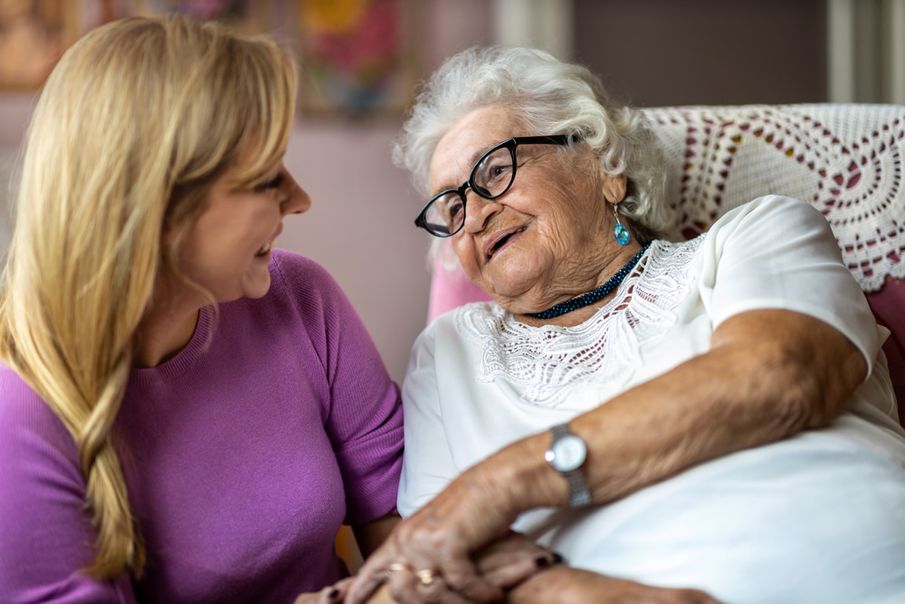In a move that aims to improve communication between staff, families, and people living with dementia, one hospice has taken on a Makaton trainer
As the families and support workers of the more than 850,000 people in the UK living with dementia will know, losing the ability to communicate can be a devastating blow from an illness which already takes so much. But one hospice is taking new steps to keep communication open.
Treetops Hospice in Risley, Derby, has become the first adult hospice in England to train its own Makaton tutor, whose role is to help staff and volunteers better communicate with patients and their families. Ali Jordan, deputy wellbeing manager at Treetops, took on the training earlier this year, learning 450 different signs and symbols of core vocabulary.
What is Makaton?
According to makaton.org, Makaton is a language programme that uses symbols, signs, and speech to help people communicate. The signs are used with speech, in spoken word order, meaning that they provide extra clues about what something is saying – making it easier for those who have no speech, or whose speech is unclear, to communicate.
It’s estimated that more than 100,000 children and adults use Makaton symbols and signs, and its benefits for those living with dementia are now being explored. The course, Watch My Needs: Using Makaton to Support Memory, run by makaton.org, aims to teach tutors, families, carers, and support staff about how Makaton can support dementia – hoping to help individuals gain confidence, independence, and the ability to make choices in their daily lives.
“Being able to communicate is one of the most important skills we need in life,” says Ali. “From practical uses such as asking for a drink if you’re thirsty, to making friends and having fun.
“At Treetops, we want to be able to communicate effectively with everyone who needs our support. Some of the people we care for might be losing language as a result of their life-limiting condition, for example, people with Motor Neurone Disease or dementia.”
Ali shares that she has been using Makaton for five years, eventually becoming a fully qualified Makaton tutor, who is now able to train staff and volunteers in the charity – running Watch My Needs courses.
“Both the person with dementia and their carer are introduced to signs and symbols to help to support their communication for as long as possible,” she explains. “This can reduce frustration and anxiety.”
According to a survey by Alzheimer’s Society, nine in 10 carers of people with dementia experience feelings of stress or anxiety several times a week, and a further 80% find it difficult to talk about the emotional impact of caring. In addition to that, there can be a significant psychological and emotional impact on the individual living with dementia. With all this in mind, while research into treatment is ongoing, programmes such as the one happening at Treetops are taking immediate steps to make living alongside dementia easier.
Interested in learning more about Makaton? Visit makaton.org


Comments